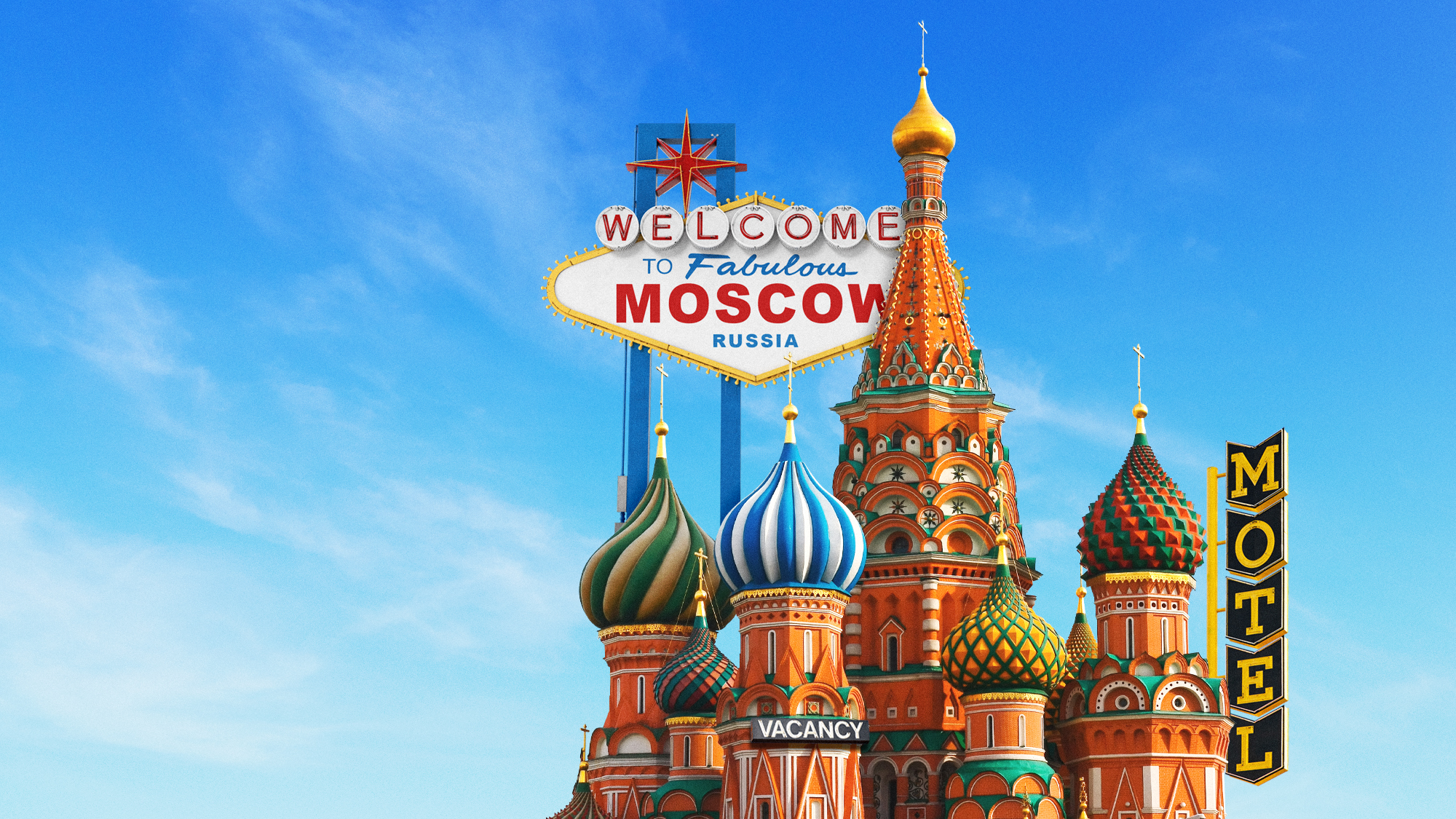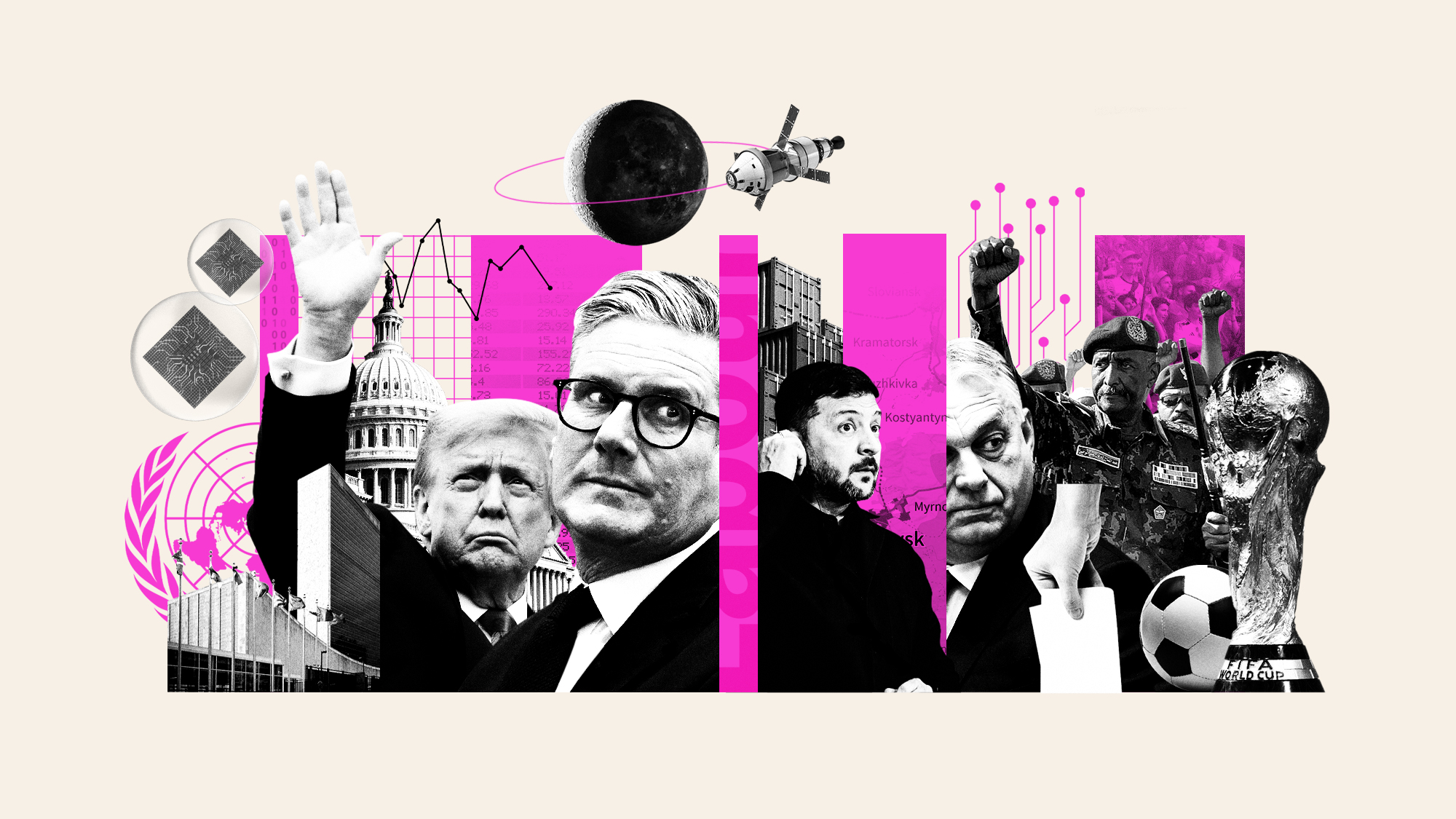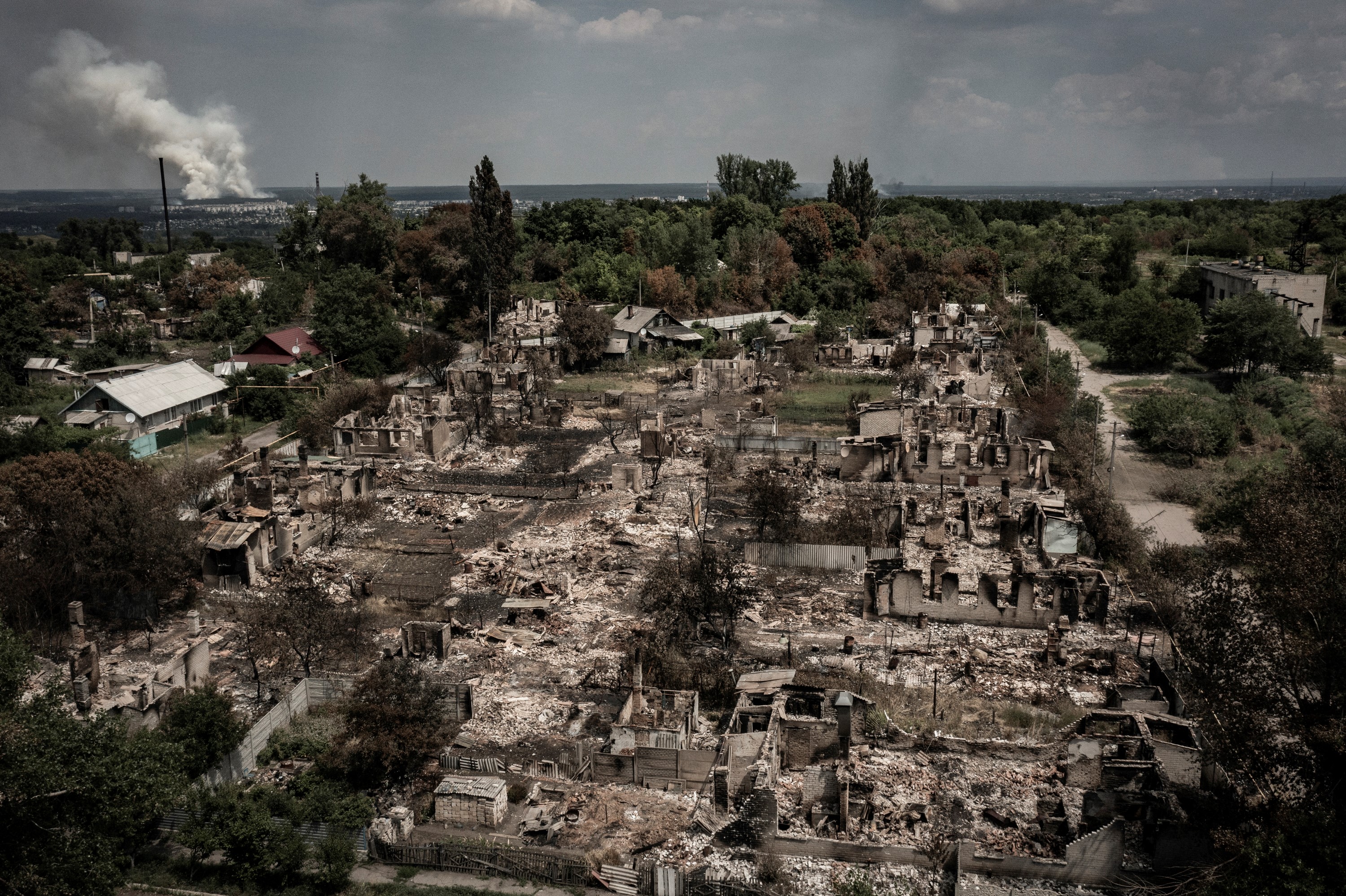Russia's 'shared values' visa
The 'anti-woke' scheme is aimed at foreigners who reject LGBTQ+ rights and 'non-traditional' values – and who can provide Moscow with online clout and skilled workers

A free daily email with the biggest news stories of the day – and the best features from TheWeek.com
You are now subscribed
Your newsletter sign-up was successful
Social media is littered with accounts of Westerners who say they are moving to Russia to escape what they deem society's moral decline – and what others see as much-needed migration and the fight for LGBTQ+ rights.
For those determined to make the move, there is a way: since last year, Russia has offered a "shared values" visa scheme, aimed at attracting foreigners who reject what Vladimir Putin calls "destructive neoliberal ideology". The president is seeking immigrants of the "anti-woke" variety, committed to traditional, conservative values.
What is the 'Shared Values Visa'?
Putin introduced the visa with a decree in August 2024, saying it was designed to "provide humanitarian support to people who share traditional Russian spiritual and moral values". Citizens or residents of countries Moscow considers "opposed to Russia" – 47 in total, including most European countries, the US, Australia and Japan – have the right to apply for what is informally known as the "anti-woke visa".
The Week
Escape your echo chamber. Get the facts behind the news, plus analysis from multiple perspectives.

Sign up for The Week's Free Newsletters
From our morning news briefing to a weekly Good News Newsletter, get the best of The Week delivered directly to your inbox.
From our morning news briefing to a weekly Good News Newsletter, get the best of The Week delivered directly to your inbox.
The process is expedited: unlike most immigration visas, there are no quotas, or requirements for knowledge of the Russian language, culture, or laws. But applicants must demonstrate that they disagree with the policies of their country that contradict "traditional" Western or Russian values. The visa is usually issued for three years, and can be converted into citizenship. Those who obtain residency are eligible for pension and child payments, and health care.
Is this really happening?
"The Russian state media reports extensively on what they see as successful cases, helping create the impression that many Western expats are moving to Russia," said DW. A spokesperson for the Russian Ministry of the Interior said 1,156 people had applied for the "Shared Values Visa" by May, nine months after its introduction. The largest group, comprising 224, were from Germany.
About 700 people have obtained this visa so far this year, according to The Washington Post. "Hundreds of others" have moved on work or student visas, or as spouses of Russian citizens, according to Maria Butina, a Russian political activist convicted in 2018 of "acting as an unregistered foreign agent" in the US. She was deported to Russia in 2019, where she is now a lawmaker and director of an organisation that helps foreigners obtain this visa.
One man who moved his family from Texas to Russia earlier this year to "escape 'woke' America" has been sent to fight in the war with Ukraine, said The Telegraph. Derek Huffman, 46, relocated to a small town about 25 miles from Moscow with his family, and agreed to join the Russian military "in a non-combat capacity", thinking he would be a "welder and later a war correspondent". But despite no experience as a soldier and "limited" understanding of Russian, his wife says he has been sent "near" the front line.
A free daily email with the biggest news stories of the day – and the best features from TheWeek.com
What does Russia get out of it?
This is "symbolic politics", Katharina Bluhm, head of the Institute for East European Studies at the Freie Universität Berlin, told DW. Russia uses the positive stories of Western immigrants to show its citizens: we "fulfil what they miss in the decadent West". And the message to the West is: "We represent the better Europe, the Europe of patriotism and traditional values and gender roles that no longer exist elsewhere."
Russia's foreign broadcaster RT, sanctioned by the US and many European governments, finances social media videos in which resettled foreigners praise Russia and criticise the countries they left.
These videos are "part of a larger soft-power effort by Moscow" to portray Russia as "orderly, stable and poised to thrive despite international isolation", said The Washington Post. "Their journey reflects the ideological narrative Putin has spent years crafting: Russia as the guardian of family-centred traditions amid a Western world spiralling into moral and social decay."
But the "ideological angle" is a "velvet glove, hiding a far more calculating economic fist", said UnHerd. The true nature of this visa is "driven by a ruthless economic logic": Russia, like many other Brics countries, needs highly skilled migrants. Now, the West seems like a "potential goldmine" of these workers, which is "simply a good deal" for Russia: all the benefits, none of the costs of training or educating them.
In addition, there are Russia's "terrible demographics": its population has long been shrinking; its fertility rate is far lower than the replacement rate, and its war on Ukraine has led to high casualties and emigration, especially of young Russians. All of this is "strictly business", laying the groundwork "to loot the West of talent the moment a crisis or moment of weakness strikes".
Harriet Marsden is a senior staff writer and podcast panellist for The Week, covering world news and writing the weekly Global Digest newsletter. Before joining the site in 2023, she was a freelance journalist for seven years, working for The Guardian, The Times and The Independent among others, and regularly appearing on radio shows. In 2021, she was awarded the “journalist-at-large” fellowship by the Local Trust charity, and spent a year travelling independently to some of England’s most deprived areas to write about community activism. She has a master’s in international journalism from City University, and has also worked in Bolivia, Colombia and Spain.
-
 Political cartoons for February 16
Political cartoons for February 16Cartoons Monday’s political cartoons include President's Day, a valentine from the Epstein files, and more
-
 Regent Hong Kong: a tranquil haven with a prime waterfront spot
Regent Hong Kong: a tranquil haven with a prime waterfront spotThe Week Recommends The trendy hotel recently underwent an extensive two-year revamp
-
 The problem with diagnosing profound autism
The problem with diagnosing profound autismThe Explainer Experts are reconsidering the idea of autism as a spectrum, which could impact diagnoses and policy making for the condition
-
 Switzerland could vote to cap its population
Switzerland could vote to cap its populationUnder the Radar Swiss People’s Party proposes referendum on radical anti-immigration measure to limit residents to 10 million
-
 US, Russia restart military dialogue as treaty ends
US, Russia restart military dialogue as treaty endsSpeed Read New START was the last remaining nuclear arms treaty between the countries
-
 What happens now that the US-Russia nuclear treaty is expiring?
What happens now that the US-Russia nuclear treaty is expiring?TODAY’S BIG QUESTION Weapons experts worry that the end of the New START treaty marks the beginning of a 21st-century atomic arms race
-
 Ukraine, US and Russia: do rare trilateral talks mean peace is possible?
Ukraine, US and Russia: do rare trilateral talks mean peace is possible?Rush to meet signals potential agreement but scepticism of Russian motives remain
-
 How oil tankers have been weaponised
How oil tankers have been weaponisedThe Explainer The seizure of a Russian tanker in the Atlantic last week has drawn attention to the country’s clandestine shipping network
-
 US nabs ‘shadow’ tanker claimed by Russia
US nabs ‘shadow’ tanker claimed by RussiaSpeed Read The ship was one of two vessels seized by the US military
-
 What will happen in 2026? Predictions and events
What will happen in 2026? Predictions and eventsIn Depth The new year could bring peace in Ukraine or war in Venezuela, as Donald Trump prepares to host a highly politicised World Cup and Nasa returns to the Moon
-
 All roads to Ukraine-Russia peace run through the Donbas
All roads to Ukraine-Russia peace run through the DonbasIN THE SPOTLIGHT Volodymyr Zelenskyy is floating a major concession on one of the thorniest issues in the complex negotiations between Ukraine and Russia